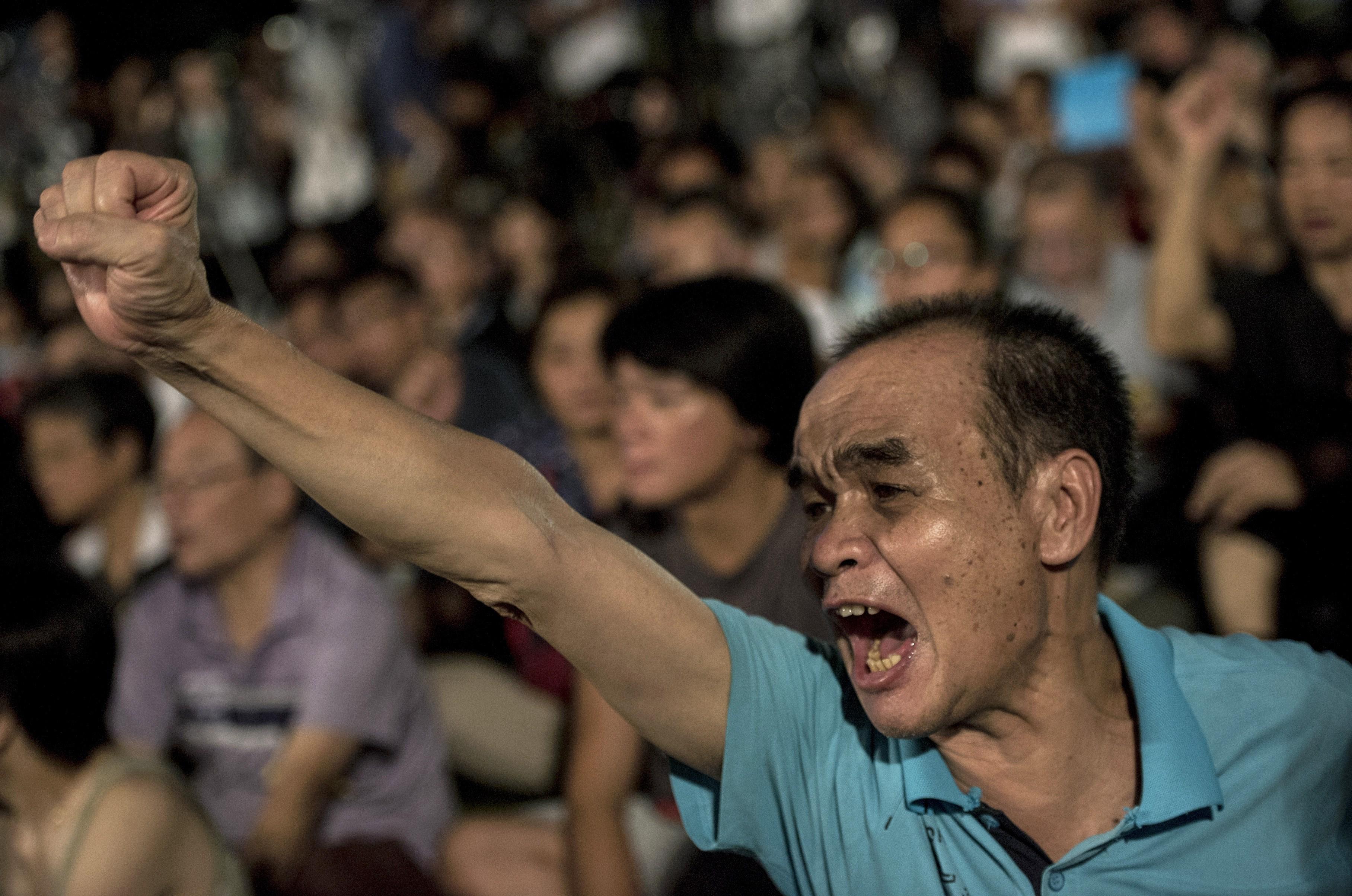Protesters have vowed to paralyze Hong Kong’s financial district after China denied the former British colony the right to elect its next leader in 2017. Protesters started gathering outside Hong Kong’s government headquarters on Sunday night and have said they won’t be leaving anytime soon. “This is the end of any dialogue. In the next few weeks, Occupy Central will start wave after wave of action,” a co-founder of the Occupy Central group said, according to the BBC. “We will organize a full-scale act of occupying Central.”
China on Sunday made it clear Beijing would remain firmly in control of Hong Kong’s political future when the legislature ruled there would be no open nominations for the next election, saying it would create a “chaotic society.” The guidelines now state that there can only be three candidates for the position of Hong Kong’s leader and each must be approved by more than half of a 1,200-member nominating committee that will likely be filled with Beijing loyalists, notes the Associated Press. With its decision, “Beijing has chosen a showdown with a protest movement unlike any it has ever faced on the mainland,” points out the New York Times.
“Today is not only the darkest day in the history of Hong Kong’s democratic development, today is also the darkest day of one country, two systems,” said Benny Tai, a law professor and a leader of the Occupy Central movement. A standoff with a large part of Hong Kong residents is precisely the kind of situation that Deng Xiaoping wanted to avoid when he came up with the “one country, two systems” formula for getting control of Hong Kong from Britain in 1997, notes the Wall Street Journal. Even though the Occupy movement has yet to gain broad support among Hong Kong’s middle class, “any strong measures by China or the Hong Kong police could change that,” notes Reuters.
